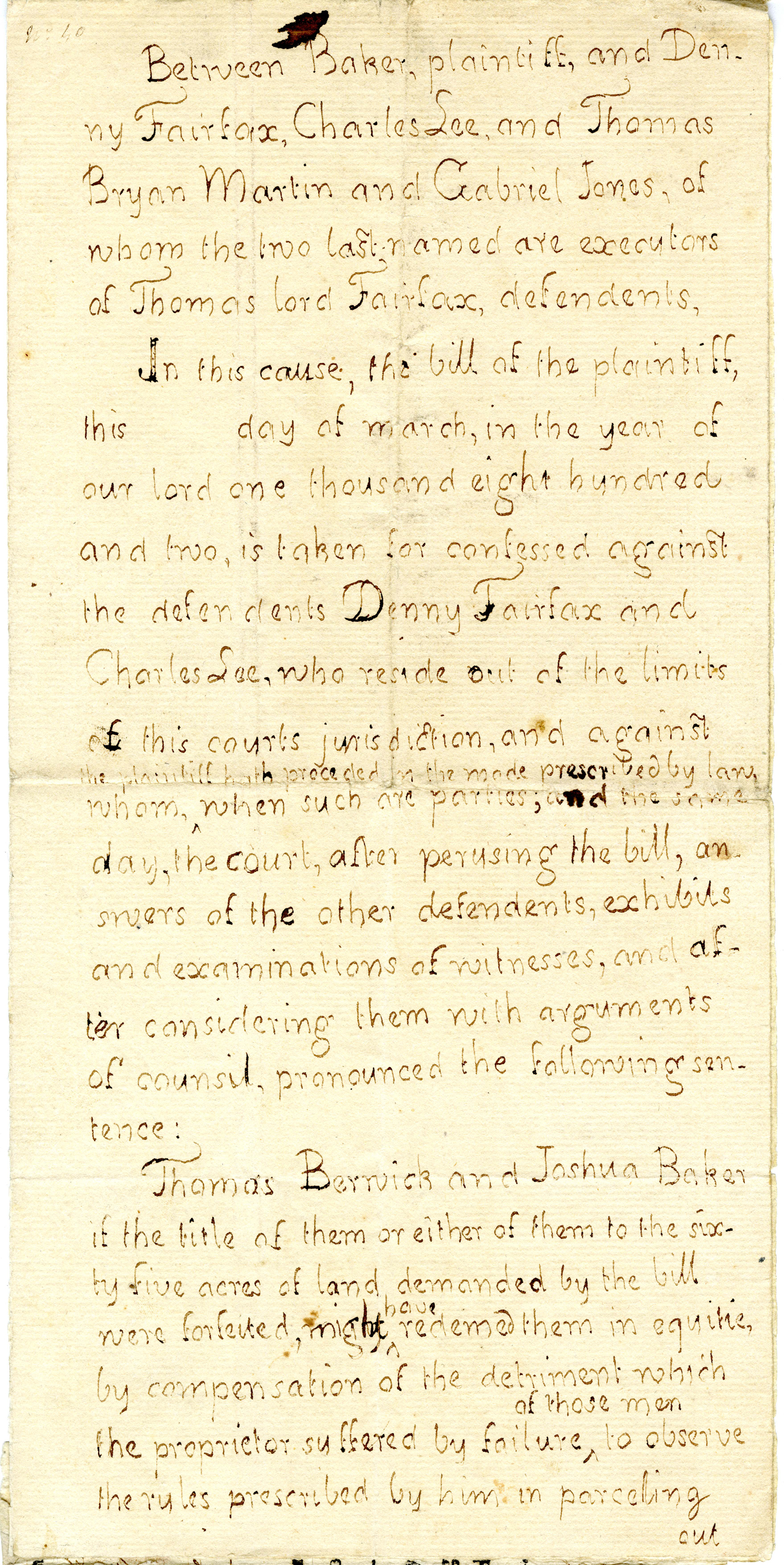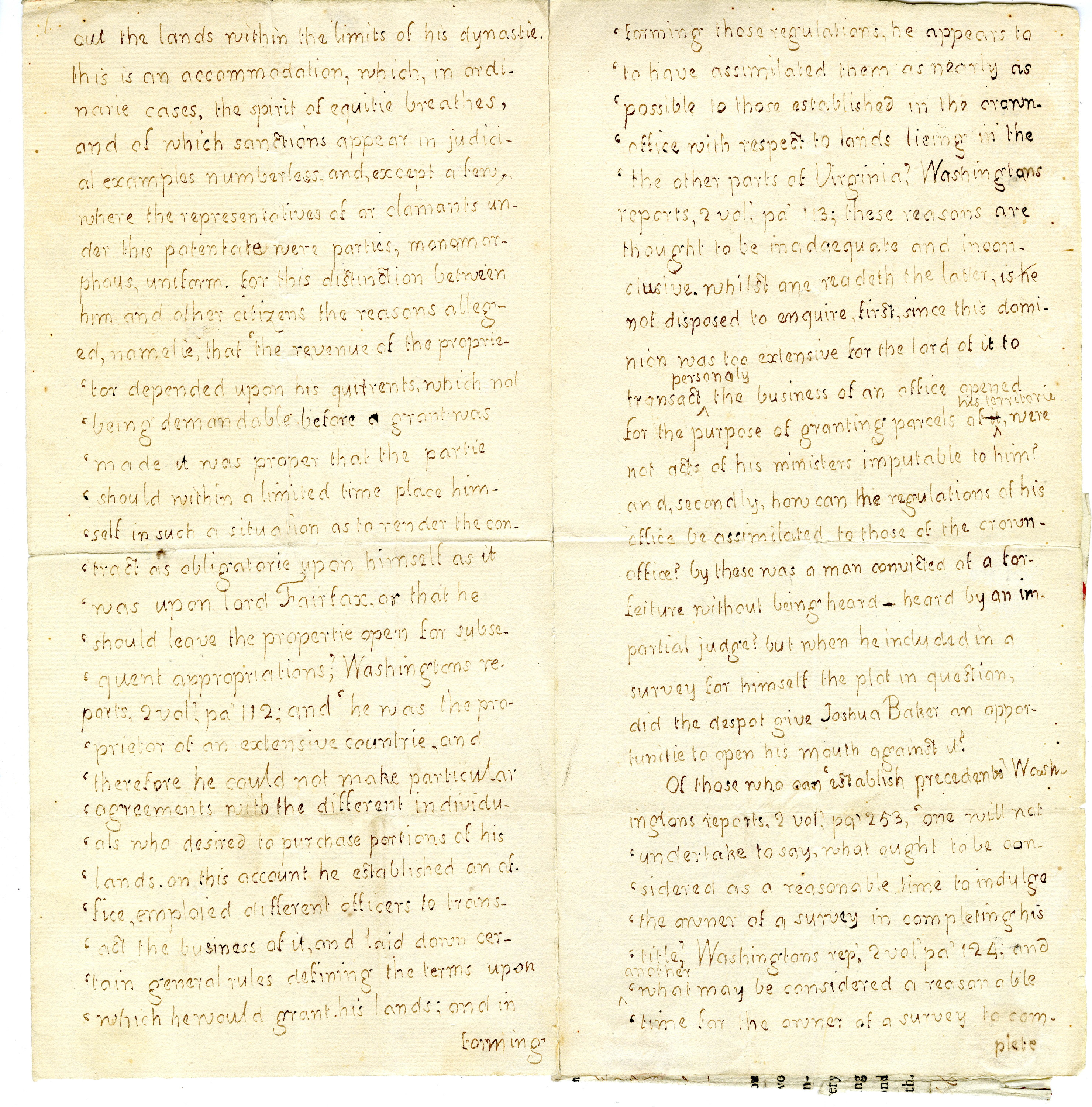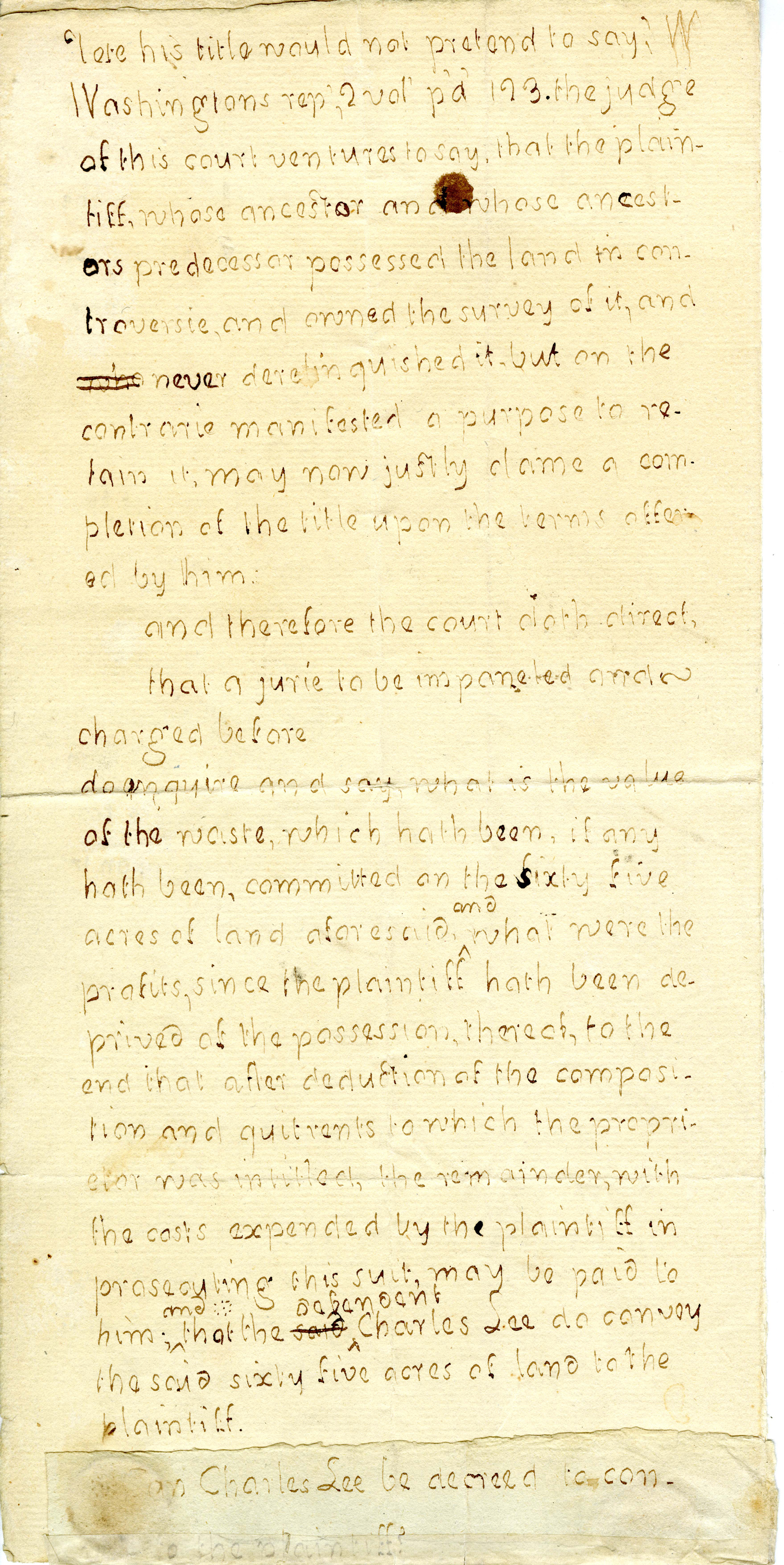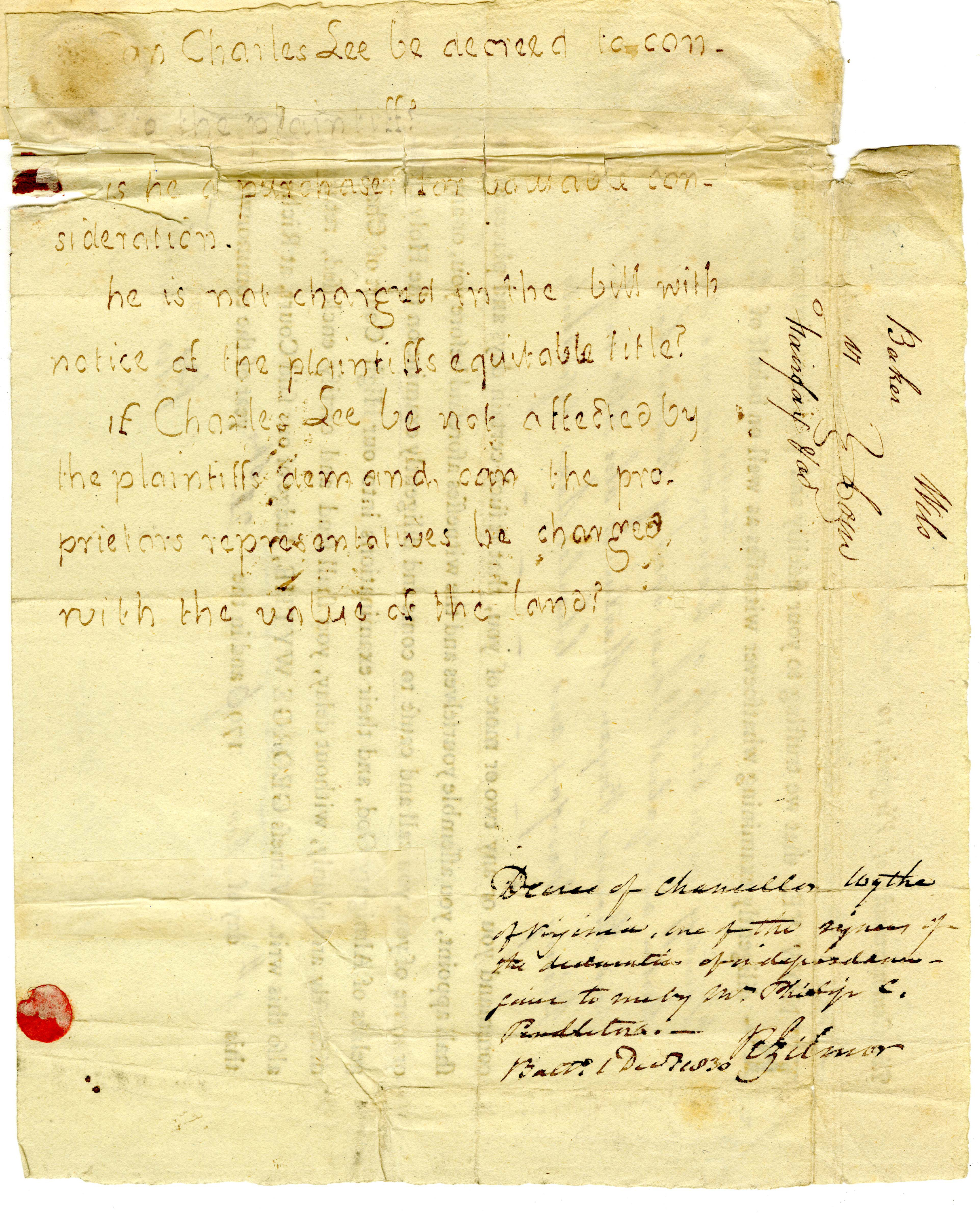Difference between revisions of "Decree in Baker v. Fairfax"
(→Page 2) |
|||
| Line 18: | Line 18: | ||
<div style="overflow: hidden;"> | <div style="overflow: hidden;"> | ||
<blockquote> | <blockquote> | ||
| − | out the lands within the limits of his dynastie. this is an accommodation, which, in ordinarie cases, the spirit of equitie breathes, and of which sanctions appear in judicial examples numberless, and, except a few, where the representatives of our claimaints under this potentate were parties, monomorphous, uniform. for this distinction between him and other citizens the reasons alleged, namelie, that the revenue of the propritor depended upon his quitrents, which not being demandable before a grant was made it was proper that the partie should within a limited time place himself in such a situation as to render the contract as obligatorie upon himself as it was upon lord Fairfax, or that he should leave the propertie open for subsequent appropriations; Washingtons reports, 2vol:pa'112; and ' he was the proprietor of an extensive countrie, and therefore he could not make particular agreements with the different individuals who desired to purchase portions of his lands. on this account he established an of.fice, emploied different officers to transact the business of it, and laid down certain general rules defining the terms upon which he would grant his lands; and in | + | out the lands within the limits of his dynastie. this is an accommodation, which, in ordinarie cases, the spirit of equitie breathes, and of which sanctions appear in judicial examples numberless, and, except a few, where the representatives of our claimaints under this potentate were parties, monomorphous, uniform. for this distinction between him and other citizens the reasons alleged, namelie, that the revenue of the propritor depended upon his quitrents, which not being demandable before a grant was made it was proper that the partie should within a limited time place himself in such a situation as to render the contract as obligatorie upon himself as it was upon lord Fairfax, or that he should leave the propertie open for subsequent appropriations; [[Reports of Cases Argued and Determined in the Court of Appeals of Virginia|Washingtons reports]], 2vol:pa'112; and ' he was the proprietor of an extensive countrie, and therefore he could not make particular agreements with the different individuals who desired to purchase portions of his lands. on this account he established an of.fice, emploied different officers to transact the business of it, and laid down certain general rules defining the terms upon which he would grant his lands; and in |
::::::::::::::::::::forming | ::::::::::::::::::::forming | ||
</blockquote> | </blockquote> | ||
Revision as of 08:50, 22 September 2016

Wythe's decree from March, 1802 in the case of Baker v. Fairfax.[1]
This series of pages details Wythe's decree in a land dispute. The disputed land was the Northern Neck Proprietary, formerly owned by Lord Fairfax. In the end, the plaintiff was awarded the land, plus court costs. In addition, the defendant was ordered to pay the plaintiff whatever profits he had unjustly gotten from the land, as well as costs to offset any damages done to it.
The manuscript is attached with an earlier printed legal form for a commission to take depositions in the case from 1796, in the hand of Wythe's clerk, Peter Tinsley. On the back of the commission — page five displayed here — are Wythe's notes on the case which appear to be separate from his decision.
Contents
Document text, March 1802
Page 1
Between Baker, plaintiff, and Denny Fairfax, Charles Lee, and Thomas Bryan Martin and Gabriel Jones, of whom the two last named are executors of Thomas lord Fairfax, defendents, In this cause, the bill of the plaintiff, this day of march, in the year of our lord one thousand eight hundred and two, is taken for confessed against the defendents Denny Fairfax and Charles Lee, who reside out of the limits of this courts jurisdiction, and against the plaintiff hath proceded in the mode prescribed by law. Whom,^ when such are parties; and the same day, the court, after perusing the bill, answers of the other defendents, exhibits and examinations of witnesses, and after considering them with arguments of counsil, pronounced the following sentence: Thomas Berrvick and Joshua Baker in the title of them or either of them to the six-ty five acres of land demanded by the bill were forfeited, might^have redemed them in equitie, by compensation of the detriment which the proprietor suffered by failure^of those men to observe the rules prescribed by him in parceling out
Page 2

Page 3
Page 4

Page 5
[Page attached to bottom of previous page]

See also
References
- ↑ "Decision of George Wythe in a lawsuit, November 9, 1796." Charles Roberts Autograph Letters Collection, Quaker & Special Collections, Haverford College, Haverford, Pennsylvania.